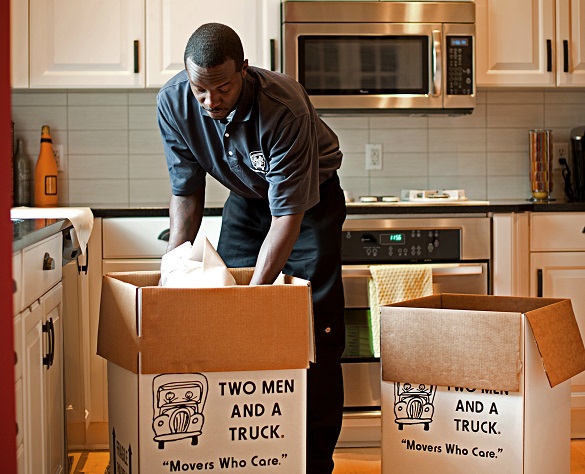Moving to a new home or office is an exciting but stressful process. One major concern for most people is the cost of hiring packers and movers. The charges for packers and movers services can vary significantly depending on several factors. Being aware of these factors can help you estimate and compare charges more accurately.
Factors Affecting the Cost Of Hiring Packers And Movers
1. Distance and Location
The distance between your current location and new destination is a primary factor affecting the charges. Longer distances typically cost more as it requires more manpower, fuel, vehicle wear and tear. Charges also tend to be higher for moving to or from metro cities compared to smaller towns due to higher labor and operational costs.
2. Volume and Weight of Items
Cost of hiring packers and movers directly correspond to the total volume and weight of items being transported. PAM local packers & movers in Bangalore generally provide an estimate after surveying your belongings. If the actual volume or weight exceeds the estimate, you may have to pay extra. So be thorough in showing everything you need packed and moved.

3. Packing and Unpacking Services
Basic charges usually only cover loading, transport and unloading. Additional fees apply if you require the movers to pack or unwrap your items. Packing fragile items also costs more. Discuss exactly what packing/unpacking services you need to avoid surprises later.
4. Type of Vehicle
Small moves may only require a mini-truck, while larger shipments need container trucks. The type of vehicle required influences the cost of hiring packers and movers. Moving to higher floors may need special hydraulic trucks with higher rental fees.
5. Season and Timing
Rates are highest during peak moving seasons like summer and end/start of months. Avoiding these peak times and scheduling on weekdays can lower your charges. Similarly, last-minute booking instead of advance booking will attract higher charges.
6. Add-on Services
Additional services like appliance disconnection/reconnection, furniture dismantling/reassembly, warehousing, and insurance cost extra. Clarify with PAM local packers & movers in Bangalore what add-ons you need to consider all cost aspects.
7. Number of Goods Carriers
More manpower is needed for packing, loading and unloading larger volumes of stuff. The number of carriers required directly impacts the total charges. Try to declutter and dispose off unused items to reduce the quantity of stuff being moved.
8. Experience and Reputation of Movers
Reputed and experienced agencies naturally charge higher compared to new/smaller companies. But you get better assurance of efficient and damage-free moves. Read reviews and talk to previous clients before finalizing a mover.

9. Insurance and Valuation
Insurance costs extra but covers any damage during transit. Higher-valued goods require paying higher premiums. Ensure proper documentation and valuation of expensive items. This ensures adequate coverage in case of mishaps.
10. Type of Materials Used
Charges can vary depending on the packing materials used, like cardboard boxes, bubble wraps, foam and tapes. Communicate if you need eco-friendly or specialty packing materials to match your requirements.
11. Brand Value and Marketing
Popular national brands and movers with large advertising budgets include their marketing costs in their charges. Small local movers may be more affordable in comparison. Get quotes from multiple movers to find the optimal value.
12. Time of Travel and Route Taken
Moving during peak hours and traffic results in more hours on the road. Also, some routes have toll charges. These lead to higher charges. Off-peak and toll-free routes are more time and cost-efficient.
13. Taxes and Surcharges
State and local taxes, lifted charges for higher floors, fuel surcharges all add to your final bill as the cost of hiring packers and movers. Ambiguity regarding taxes often results in payment disputes later. Ensure all surcharges are clarified beforehand in the contract.
14. Payment Mode and Cash Discounts
Opting for full cash payment or advances may attract slight discounts from some movers. Compare payment modes and timelines to avail such discounts if offered.
15. Handle Items Yourself
Packing and transporting small, non-fragile items yourself is an effective way to lower charges. This reduces the quantity that the movers need to handle. For example, you can pack clothes, linens, toiletries, books and other basic items in suitcases to move yourself. However, do not attempt moving large electronic items, furniture or appliances by yourself.
16. Declutter and Dispose Unwanted Items
Charges depend on the total volume of items being transported. The more stuff you move, the higher the cost. Review your belongings before the move and discard or donate anything you don’t regularly use or need. The lesser you move, the lower the bill.

17. Get Quotes from Multiple Movers
To get the optimal price, contact and get written quotes from as many movers as possible. Compare their rates based on factors like experience, services offered, reviews and your specific requirements. Avoid very low quotes as they may indicate inexperienced movers or sub-standard service.
18. Compare Rates Across Companies
Rates and charges can vary widely across different moving companies. Large established brands often charge higher compared to smaller local players. But they may offer better services, assurance and transparency. New startups may offer massive discounts to attract customers. Compare prices across 5-10 relocation services before deciding one. This gives you a good benchmark to know what’s expensive or cheap.
Conclusion
Estimating accurate charges from packers and movers involves considering various services needed, volume of items, distance as well as timing. Clarify every cost component and applicable taxes before contracting. With knowledge of key factors and prudent research, you can get the best moving deal. Happy shifting!

